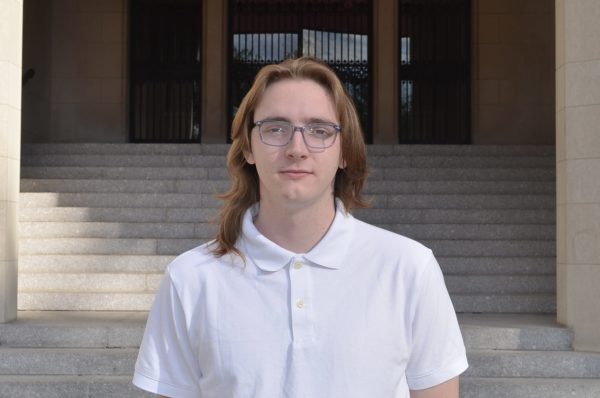When you live in a country where freedom of speech is enshrined in the Constitution as the first fundamental right of citizens — prohibiting the federal government from making any law abridging citizens’ speech, press or peaceful assembly — it can be easy to take such fundamental freedoms for granted, to think that free speech really is free. For a long time, it didn’t seem like I had to do anything to maintain my fundamental right to express my identity, my beliefs and my opinions.
Respect for the will and rights of all subjects under the government is the foundation of our democracy and our government. Therefore, the American government should not be able to exist without respect for the rights of everyday citizens. The pluralistic nature of the American government allows for many points of access. The system of checks and balances prevents abuse of power. If respect for the rights of the people is so ingrained in the United States government, it would help explain why the United States has remained a democratic nation at times when other governments lapsed into authoritarianism or despotism. Despite its simplicity, this story helps explain how and why many Americans have enjoyed freedoms that people in other countries have been denied.
It’s the easiest to ignore all the ways in which this story has worked when it stops working. I’ve been as confused as everyone else I know about the shifts in the American political landscape in the past 10 years. How can a government violate what seem like the fundamental rights of its people and stay in power? How can the president issue an executive order that attempts to dictate which people get the privileges of citizenship, openly contradicting over a hundred years of legal precedent and an amendment to the Constitution? How can the president withhold federal funding from universities in retaliation against peaceful protests?
Since I started as a staff writer for the news and opinion sections in Volume 106, being part of The Fordham Ram has been a great experience. The things I’ve learned here and the people I’ve gotten to work with have changed my answers to these questions. It’s strange to think back to this time a year ago and wonder what I would be doing now if I hadn’t decided to join the mailing list for the opinion section. As I’m writing this, the alternate-reality version of myself that isn’t on staff at the Ram is most likely sleeping. Even though I’ve lost one or more hours of sleep for the Ram, I’m so glad to have been a part of this.
These days, I’m more able to recognize exactly what makes free speech so important and what free speech costs. In my one semester as Assistant Opinion Editor, we broke news on a lot of politically charged stories and published many students’ strong opinions on those matters. Working with the whole staff, especially Indranil Kar and Abigail Adams, to ensure we were representing each student’s voice fairly alongside all the pertinent facts was a lot of work, but I would do it all over again.
Looking forward to the semester ahead of us, I’m excited to take on more responsibilities, even though I’m going to miss our former Volume 107 staff members. Sitting next to and being able to commiserate with Allison Schneider, a former Assistant Opinion Editor herself, always made the occasional curveballs we got in the opinion section easier to handle. Being on staff at a newspaper makes you realize how much work it takes to accurately and effectively communicate information to any audience, even at a small newspaper run by college students. Ram production nights are long and exhausting, no doubt about it, but I choose to show up because I have so much fun with all these wonderful people and because we all care about doing this job and doing it well.
I titled this article “No Such Thing As ‘Free’ Speech” because I thought it sounded cool, but also because the times we live in have made it incredibly obvious that free speech is not free. It requires a collective investment on everyone’s part that ensures everyone has access to their basic needs and the opportunity to exercise their rights. This investment shows up in a lot of ways, often in how we spend our time and money. When that investment isn’t enough, the rights of everyone begin to gradually and then rapidly erode. That’s why it should alarm everyone that the Trump administration and Congress have forced the Corporation for Public Broadcasting (CPB) to shut down.
In signing a recession bill into law, President Donald Trump clawed back $1.1 billion of federal funding for public media, earmarked for the CPB for the next two years. The CPB funds over 1000 public radio stations and hundreds of public television stations. Seventy percent of this funding goes directly to local public media stations, and almost half of the grantees are rural. While some of these stations are finding other ways of raising money, including listener donations and community initiatives, the ones in rural areas without consistent revenue from donations are likely to hit the hardest. Public radio stations run by universities, too, are being impacted by these cuts, including Fordham’s own WFUV. These stations give millions of Americans vital access to news, public media, educational materials and all the other information they need to fully exercise their rights. Freedom of speech requires the investment of our collective time and effort.
Public media is an important pillar of this collective investment. Even though poorer and more rural communities will likely be the most impacted by CPB’s closure, everyone will be at a disadvantage. When anyone is uninformed, everyone is worse off for it.
Stuart Cremer, FCRH ‘26, is an English major from Mountain View, California.




































































































































































































